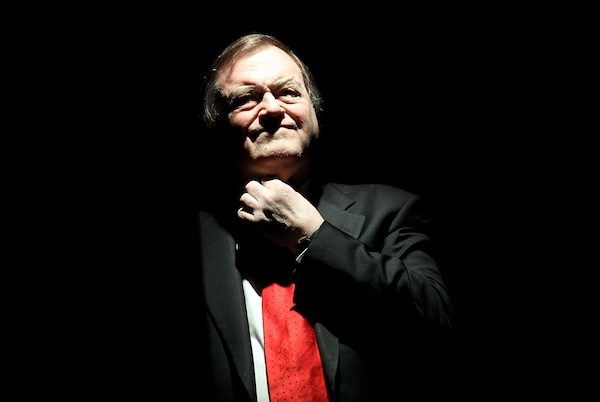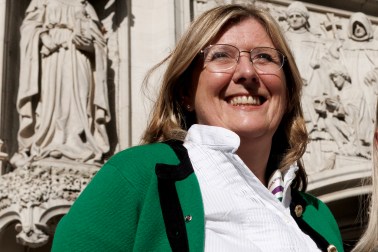It’s all very well everyone having fun at the expense of the hapless Hansard reporter who sent a note to a Scottish MP querying whether he’d called the SNP ‘big fairies’. He might well have done. Stranger things have been uttered in the Chamber of the House of Commons. ‘Big fearties’ for a start. I should know. I was a Hansard reporter for 12 years and pretty terrifying it could be. Believe me, turning 10 minutes of a John Prescott speech into intelligible English in under an hour takes some nerve even with a minimum shorthand speed of 180wpm (compulsory for all Official Reporters).
My former colleague, Hansard editor Lorraine Sutherland, said on Radio 4 this morning that her reporters need a lot of skill, stamina and judgement. Not that all MPs value the service. Quite the reverse. It was only when the inestimable Matthew Parris devoted his column to reveal the magic we’d worked on a particularly inscrutable Prescott passage in 1992 that Two Jags softened his famously robust approach towards us.
The job of a Hansard reporter then – as now – wasn’t for fearties, big or small. Under immense time pressure, sending down queries we often knew would seem ridiculously obvious to their recipients was part of the job. Not sending them could result in something much worse: a mistake.
Many’s the time I emerged whey-faced from the Chamber, whispering shakily of ‘being Rhodried’. Former Cardiff MP Rhodri Morgan didn’t just speak very fast, he had a touch of the Prescotts about him. Words rattled out in slightly the wrong order and obscure, unintelligible phrases saw him covered in a veritable blizzard of queries from the Office of the Official Report.
For it was – still is – the Hansard reporter’s job to question uncertainties. Hansard’s record, unlike that of her Majesty’s press, is official and (almost always) flawless.
The late Tony Banks MP was always a good ‘turn’ (Hansard speak for the five or ten minutes each reporter covers). When he was heckled by a Liberal Democrat the reporter sent a note asking if he’d been called a Marxist Leninist stooge. Much worse, came Banks’ reply, he said I was a Marks and Spencer’s suit.
Pamela Nash, MP for Airdrie and Shotts, obviously thought it a hoot to reveal the latest query on Twitter. ‘Funniest note from Hansard I’ve seen yet. Need to get them Scottish lingo lessons : )’ She wouldn’t be scribbling smiley faces if she’d had to report the late Sir Rhodes Boyson, may his mutton chop whiskers rest in peace.
The speeches of this erstwhile Tory MP verged on the surreal. He’d utter a noun and pause for a few seconds before divulging a seemingly unconnected verb. Verbatim, most of his speeches would have been unintelligible. We filled in the gaps; it was history in the making via a linguistic dot-to-dot.
Contrary to common belief, Hansard isn’t verbatim. Its origins can be traced back to the early years of the 19th century, when William Cobbett began to print parliamentary debates as a supplement to his Political Register. In 1811, he sold his interest to Thomas Hansard, son of Luke Hansard, printer to the House of Commons. And it was then that the debates, initially culled from the press, began to be reported by Hansard’s own writers and to be viewed as the most authentic and accurate account of parliamentary proceedings.
The role of Hansard reporter, it seems, isn’t quite that of the Fleet Street hack. The definition of his (or her) job, adopted in 1907 by the Select Committee on Parliamentary Debates, is to produce a report which, though not strictly verbatim, is substantially verbatim, ‘with repetitions and redundancies omitted and with obvious mistakes corrected, but which on the other hand leaves out nothing that adds to the meaning of the speech or illustrates the argument’.
This is about as easy to do as it is to get your tongue round.
A matter of weeks after I qualified as a Hansard reporter I heard just two words that I recognised in a short speech given by an ageing Tory MP who had difficulty with his articulation and who has since died. They were ‘cold war. I knew which side of the Berlin wall he was on, so I created an argument around those seven letters and sent the whole contribution down to the Chamber for his approval. His only change was to capitalise the two words.
So before MPs start making fun of those who record their words for posterity they should remember how much they owe them. They should also speak slowly and clearly and respond to those little white queries as quickly as possible, no matter how silly they seem.






Comments